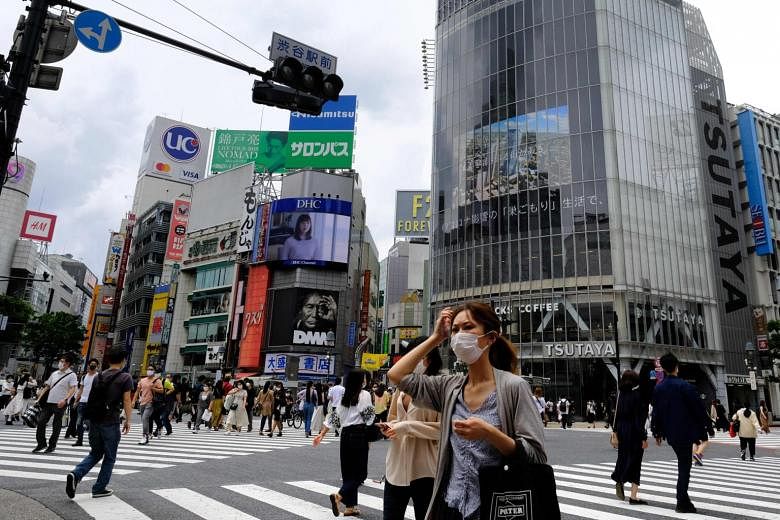TOKYO (BLOOMBERG) - After helping fuel a remarkable surge in Japan's employment rolls - in the face of a declining population - women have become the hardest hit in the nation's Covid-19 recession.
That's one takeaway from a study of the damage to income and spending power on different segments of the Japanese labour market conducted by economists at the Massachusetts Institute of Technology and University of Tokyo.
The economists computed a "consumption equivalent variation", a gauge of the blow to consumption and income seen from the Covid-19 crisis.
On average, the welfare loss for males was equivalent to just 1.1 per cent of earnings while females saw a 3.4 per cent drop.
The worst off were women in irregular, face-to-face and rigidly scheduled jobs, with a loss equivalent to 9.75 per cent of earnings, the study showed.
"Female workers fare worse than males and their negative welfare effects are three times as large as those of male workers," wrote Mr Shinnosuke Kikuchi at MIT and the University of Tokyo's Sagiri Kitao and Mr Minamo Mikoshiba in a study dated July 20.
Irregular employment, encompassing contract and part-time work, is highly correlated with greater welfare loss.
As more than 50 per cent of female workers are irregularly employed, they have been disproportionately impacted by the economic crisis, the economists said.
To make matters worse, 69 per cent of female workers are in the severely affected face-to-face occupations, such as in retailers, restaurants and hotels, compared with 39 per cent for male workers.
Women had led an increase in employment since Prime Minister Shinzo Abe championed a "womenomics" initiative to boost the role of females in the workforce of the world's third-largest economy after taking office in December 2012. Progress on securing more leadership positions for them too remains way off target.
Still, many of the new jobs came in the form of the non-regular or people-facing positions that left them more vulnerable to the coronavirus-triggered slump in economic activity.
The latest June labour market numbers released on Friday continued to show women in non-regular jobs were affected more than men.
They made up 59 per cent of the one million jobs that disappeared in that category from the previous year.
There is "significant uncertainty about whether various shocks we observe now will be short-lived or long-lived and whether they will be repeated multiple times over years to come", the MIT and University of Tokyo researchers wrote.











